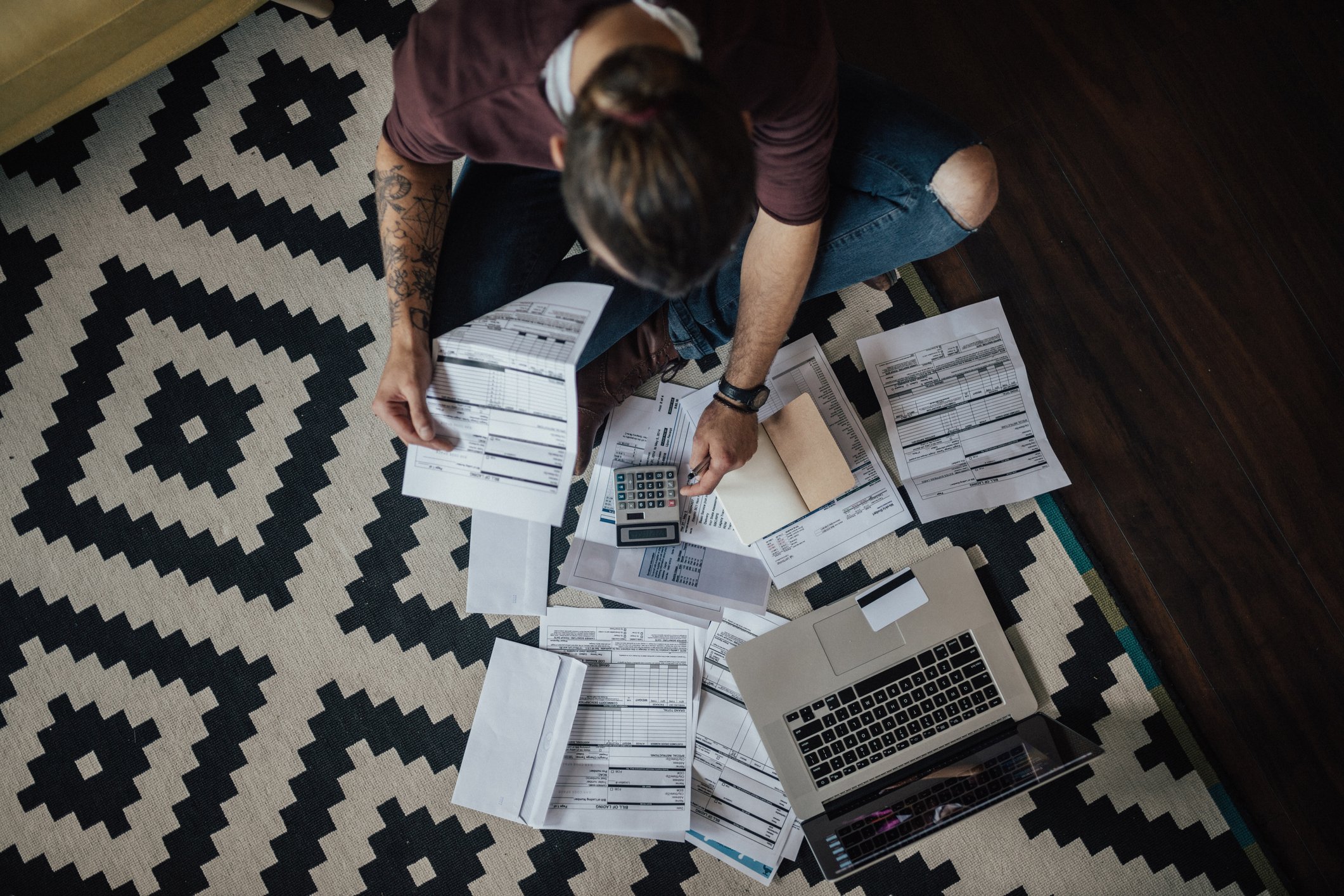Real talk time. If you’re in debt, you’re experiencing all types of emotions, but shame should not be one of them. While it’s important to get out of debt as soon as possible, don’t beat yourself up over your debt. You aren’t ‘bad with money’, but you may simply need to learn some money management skills to avoid getting into debt again.
Becoming debt-free is a journey worthy of your time. Once you reach the point of paying off your last dollar, you’ll empower every aspect of your life. You can make decisions for yourself, not for money.
Financial freedom is possible and could be achieved sooner than you think. Half of the battle is believing this to be true for you. Create a plan, stick to it, and let the momentum carry you to debt-free status.
There are no secrets — just a proven plan, patience, and a passion for a life unbound by debt.
How to Get Out of Debt
Set goals for life beyond the debt
Start your debt repayment journey by focusing on your motivations.
Being debt-free is a worthy enough reason, but you probably have other goals you can channel as an incentive. Do you want to travel and backpack around Europe for three months? Are you dreaming about owning a home? Planning to start a business or family?
Be clear on what you want. Prime your mind to think about those financial goals each time you pay down the debt. It turns financial stress into an empowering experience rather than something to put off.
Know your numbers & percentages
Once you know your ‘why’, get clarity on your numbers. Make a spreadsheet to track your monthly expenses and debts, and what you plan to pay down monthly. List your debts from smallest to largest. Tackle the smallest one first. Set reminders for your repayment dates.
Instead of a standard budget, think of your money in percentages. Give each dollar a job.
The 50/30/20 budget system is a good starting point: 50% essentials, 30% wants and 20% savings. Add up your total income, expenses, debt and spending.
Your monthly view might look like this:
| Income | $5,000 |
| Expenses | $2,000 |
| Debts | $300 (monthly repayment) |
| Spending | $1,000 |
You decide to allocate $500 for savings and $300 for investing. This is how your percentages will look:
| Expenses | $2,000 | 40% |
| Debts | $300 | 6% |
| Spending | $1,000 | 20% |
| Savings | $500 | 10% |
| Investing | $300 | 6% |
After taking care of your financial responsibilities, you’ll have $900, or 18%, of your income left over. With your bills, spending, debt repayments and even savings and investing covered, you can use that surplus of $900 to put towards your debt.
Open up a separate bank account for each category, and with every new payment, direct the percentage amount where it belongs. Make sure the direct debit bills come out of the expenses account.
Save a minimum of $1,000 to start an emergency fund
Aim to save at least $1,000 to start your emergency fund, and only use this money if you absolutely need to.
As you focus your efforts on reducing debt, an emergency fund will also provide a reassuring psychological buffer. If you follow the budgeting strategy above and save $500 per month, you’ll have $6,000 at the end of the year.
Increase income, cut expenses
Use both strategies simultaneously. Boosting your income and reducing expenses. Bring in more money by taking a second job, setting up a source of passive income, applying for a freelance project or reaching out to your network to let them know you’re available for work.
Sell items you no longer use, get a few shifts at a busy restaurant or store, drive for Uber or pet sit.
Minimise costs by moving into a share house, cooking 90% of your meals, having friends over instead of going out or focusing on a secondary goal, such as improving your health.
Dedicating a year of your life to pay off debt will benefit you for decades to come.
Use this period to explore new (more affordable) hobbies and see it as a time of self-discovery. Bushwalking, reading, time in nature, learning a new skill, hosting dinners and spending time with family doesn’t have to cost much. Make a game of seeing how little you can spend while still enjoying your time.
Celebrate your progress
You’ll likely receive birthday money, a tax refund and other monetary surprises throughout the year (or the debt repayment period you decide on). Whenever possible, put 75% to your debt and treat yourself with the remaining 25%.
Celebrating your progress is an integral part of the journey and can prevent any binge-spending setbacks. While there can be great joy and achievement in this period, having desires is okay too. It’s a chance to reprogram your spending behaviours and money mindset.
Set up your support network
Share your debt repayment journey with family and close friends. These people can support you by respecting boundaries and keeping you accountable.
Your bank is part of your team, too, so don’t hesitate to ask for advice. They’ve seen thousands of people go through this before and might offer strategies that you’re unaware of.
Government-led debt relief programs are available, including the National Debt Helpline, legal aid, and urgent money help. Consider speaking to a financial counsellor to help you discover what support you may be eligible to receive.
Turn your journey into a learning opportunity
You’ll be watching finance-related videos, reading books, listening to podcasts and learning from other people who’ve paid down debt.
Appreciate this time as an opportunity to develop skills and perspectives that serve you. Set the foundation for new money management practices.
Paying off your debt is buying your freedom. It’s not just about your finances but your life as a whole. Zoom out, think long-term and enjoy the adventure.
By mastering your money, you liberate your life. Now and into the future. By paying off debt, you prove to yourself anything is possible.
DIVE EVEN DEEPER

What is the Minimum Wage in Australia?
A minimum wage is the lowest amount you can be paid for doing a job.

Credit Repair in Australia: How it Works
Many of the steps you need to take to repair low or bad credit can be done yourself for free. However, you can also hire a credit repair company to do some of the work.

Debt Collectors: What To Do If One Contacts You
A debt collector is a person or company that attempts to recover money owed. Know your rights when it comes to legal debt collection.

16 Ways to Find Fast Cash
Need money now? Learn how to get fast cash, and the types of loans to avoid when you’re strapped for cash.

